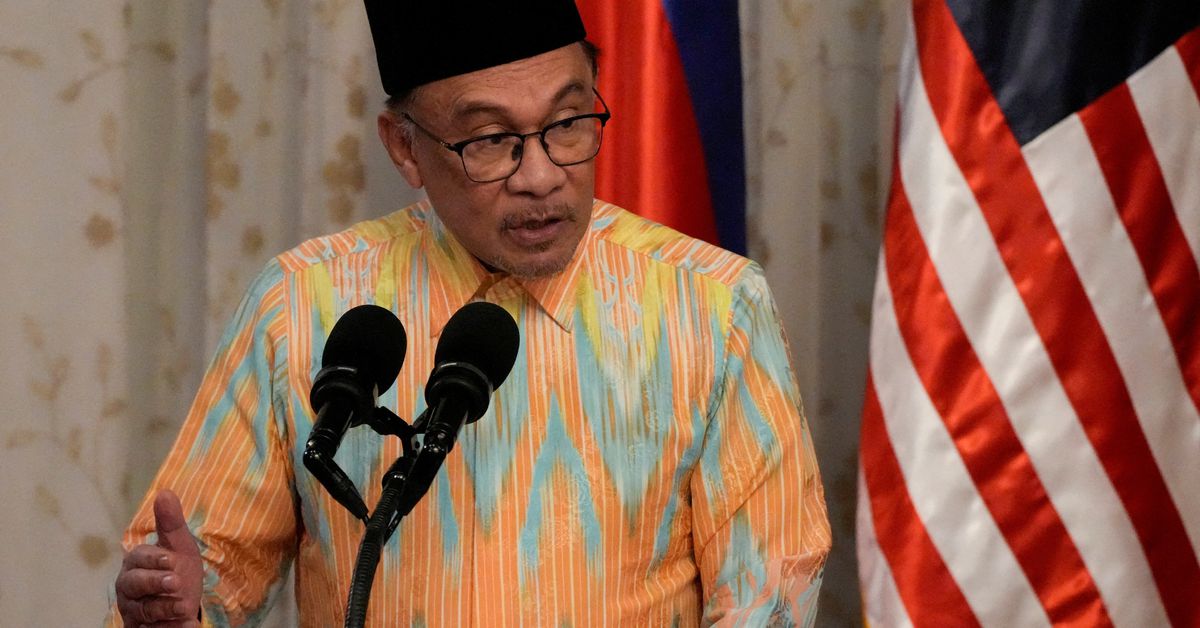[1/5]Logo of Energy Asia conference is seen during the event in Kuala Lumpur, Malaysia June 26, 2023. REUTERS/Hasnoor Hussain
KUALA LUMPUR, June 26 (Reuters) – Hydrocarbons will be an important part of Asia’s energy mix, Malaysian Prime Minister Anwar Ibrahim and industry executives said on Monday, as affordability and energy security remain key concerns for the region.
Achieving net-zero emissions targets should not come “at the expense of economic growth or vice versa”, Anwar said at the inaugural Energy Asia conference, hosted by Malaysia’s state oil firm Petronas.
“Instead, Asia must take every opportunity to further dialogue and actions around how we can responsibly plan to enable every country (in) its right to development and lower carbon aspirations,” he said.
Asia is home to some of the world’s largest greenhouse gas emitters and countries have made varying commitments to phasing out fossil fuels and accelerating energy transition, while also demanding adequate financial support from developed emitters.
Anwar said natural gas would play an important role in the energy mix for Malaysia, which is among the world’s top five liquefied natural gas (LNG) exporters.
The Organization of the Petroleum Exporting Countries expects global oil demand to rise to 110 million barrels per day by 2045 and account for 29% of energy supply as the world economy doubles, with the population reaching 9.5 billion, OPEC Secretary General Haitham Al Ghais told the conference.
Oil accounted for 30.9% of global energy in 2021.
Saudi Aramco CEO Amin Nasser said at the event that a complete energy transition for the $100 trillion global economy in just a quarter of a century is a “fanciful” idea, as growth in renewable sources has not met the rise in energy consumption.
The energy equivalent cost of green hydrogen is in the range of $200 to $400 per barrel versus current oil price at $75 a barrel, he said as he warned against putting all “transition eggs in the new energy basket”.
Nasser urged acceptance in Asia of a “multi-speed transition model” and financial support for developing countries.
To achieve its transition goals, the Malaysian government will launch two roadmaps in the second half of the year detailing the country’s potential for developing hydrogen fuel and carbon capture and storage technology, Anwar said.
Scientists say that while developing new technologies is key, cutting emissions remains crucial to keeping the world from warming more than 1.5 degrees Celsius (34.7°F) over the pre-industrial era.
Malaysia is also committed to joining a global pledge to cut methane emissions by 30% by 2030, versus 2020 levels, Anwar added.
Reporting by Mei Mei Chu and Muyu Xu; Writing by Kanupriya Kapoor and Florence Tan; Editing by Himani Sarkar
Our Standards: The Thomson Reuters Trust Principles.

